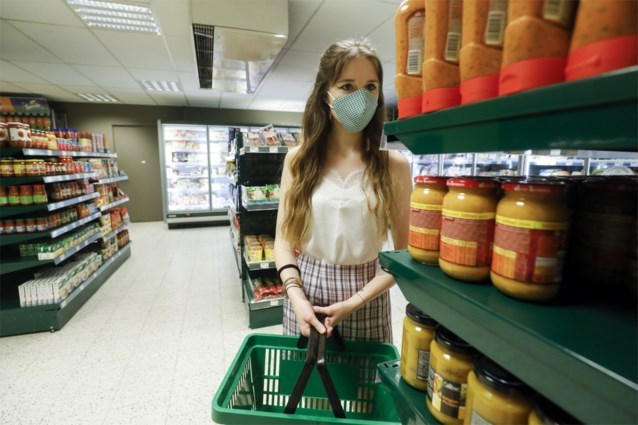Masks will again be mandatory inside shops and other indoor public spaces, Prime Minister Alexander De Croo announced in a press conference on Tuesday. The rules for using the Covid Safe Ticket (CST) will also be standardised across Belgium and, where possible, teleworking will be encouraged.
"The Consultative Committee met early today. Nobody can ignore the figures. In our country and other countries, you see an autumn wave after a plateau," Prime Minister Alexander De Croo told the Consultative Committee press conference. "Last week we saw a 70% increase in terms of infections."
Here's what's changed:
A return to masks indoors: From Friday 29 October, masks will be required in shops, shopping centres, healthcare institutions, concert halls, sports centres, libraries and places of worship. However, masks are not needed in places where the CST is used. Catering staff will have to wear a mask again.
"Vaccines remain our most important weapon against this virus. They give us 90% protection from serious illness and 70% from infection. We need to build higher walls of protection, which ensure that our lives still go on. A free, but cautious life. We must be careful about the number of contacts we have. From Friday, masks must be worn in indoor public spaces."
Teleworking where possible: The committee strongly recommended returning to teleworking, where possible.
CST changes in Flanders & for events: "The Covid Safe Ticket will need to be shown throughout the country for visiting the catering industry and fitness centres from 1 November," De Croo explained. This change will bring Flanders in line with the rest of the country, as Brussels already uses the pass in hospitality establishments and Wallonia had planned to do so from 1 November.
Rules regarding the use of the CST at events have also changed. Now the CST will be required at indoor events with 200 people or more and outdoor events with 400 people or more. Previously, this had been 500 people inside and 750 outside.
Introducing the pandemic law: As previously announced by Belgium's Health Minister Frank Vandenbroucke, Belgium has taken steps to activate the pandemic law.
"The federal government will use the pandemic law," De Croo confirmed. "The consultation committee takes note of the federal government's decision to declare an epidemic emergency for a maximum period of three months, and approves this decision".
"We will thus have a stable legal basis that will enable us to debate the measures taken in Parliament" and to improve their quality, the Prime Minister added.
The pandemic law states that the government can take measures required when an epidemic is announced, but only with the approval of Parliament. An epidemiological emergency is defined as "a serious threat to a large number of people that can seriously overload health services and requires coordination at the national level". It need not be a worldwide pandemic, as is currently the case.
Parliament must ratify the emergency within two weeks, but the measures may take effect earlier.

